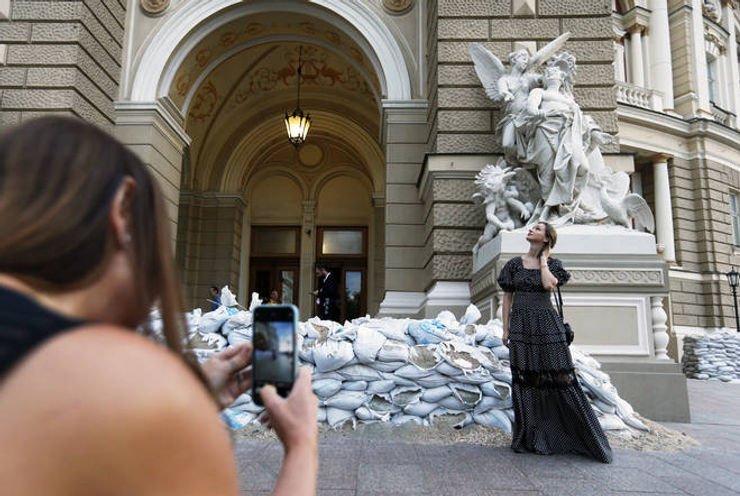By: Andrew Zhang
Last Friday, theater officials at the Odesa Opera House performed their first
shows since the invasion of mainland Ukraine. The reopening of the Opera House
only happened after the Russian military gave the officials permission to operate.
The threat of war is mostly gone but can still be seen everywhere around
the Odesa Opera House. “In case of sirens, proceed to the shelter within the
theater. You are the soul of this opera house, and we think it’s very important to
demonstrate after 115 days of silence that we are able to perform,” said Ilona
Trach, the theater official who presented the program.
Since the beginning, Odesa was not meant to be controlled by a
warmongering nation. The Odesa Opera House was first designed by an architect
from St. Petersburg, rebuilt by Viennese architects after a fire, and is set in a city
founded by a Russian duchess and mostly laid out by a French duke. This cultural
melting pot of a city also attracted travelers from every corner of the
Mediterranean Sea and Central Asia.
But now, that beautiful cultural flame has been snuffed out by the great
powers controlling Russia. “Unfortunately, it will go on for some time. It makes us
depressed just how crazy Putin seems to be. It is Shakespeare, it is youth, and it is
pure love.” Said Marina Najmytenko, a soprano who played Juliet in Shakespeare’s
Romeo and Juliet.
In Putin’s eyes, Odesa is as precious as a diamond. The President of Russia
sees Odesa as a cultural icon and key port for Ukraine’s economy, as well as
Russia’s and the Soviet Union’s in the past, due to its position on the Black Sea.
Battles for other similar strategic cities have been raging on across Ukraine.
“Anyone capable of Bucha, of Mariupol, of what is happening down the road in
Mykolaiv, is capable of anything,” said Gennadiy Trukhanov, the mayor of Odesa.
But, even after major wars, Odesa has been able to pick itself back up and
continue forward. The city has gone through many cycles of boom and bust,
surviving scarring events like the Holocaust.
After all is said and done, some are just happy that the show is back up and
running. “We got permission to perform from the military 10 days ago, and today
is pure happiness,” said Mr. Chernukho-Volich, the opera’s chief conductor.
Link to article: https://www.nytimes.com/2022/06/18/world/europe/odesa-opera-ukraine-russia.html











